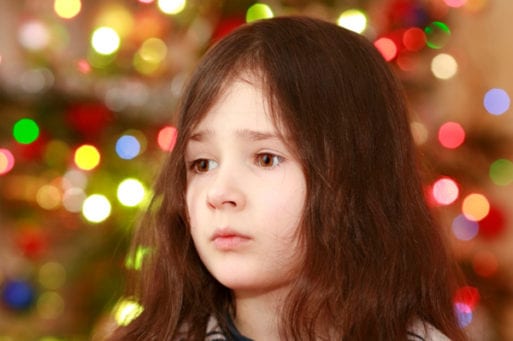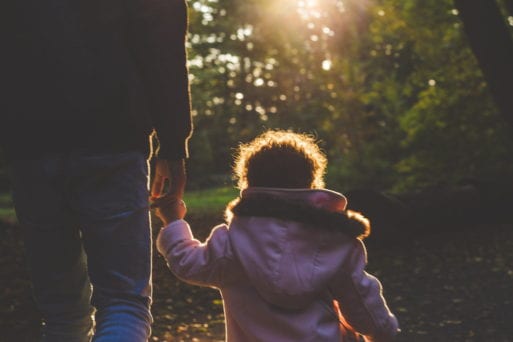Learning about death is a major event in any child’s life, and there’s no rule as to how and when it occurs. Children may become curious about death when it comes up in a conversation or story, or they may experience a loss of their own before understanding the concept. Unfortunately, in the midst of a pandemic, it’s likely that many children will be learning about grief first-hand when a loved one dies of COVID-19.
Parents may be unsure of how to navigate this experience with children, particularly when coping with their own grief. To help ease this process, a team of doctors from the Department of Psychiatry at the University of Oxford have offered guidance to parents talking to their children about a COVID-19 death in the family.
Children Know When Something Is Wrong
In the Lancet article, doctors Louise Dalton, Elizabeth Rapa, and Alan Stein explain that even children as young as 2 can sense when something changes. Avoiding the conversation won’t protect a child from grief, and it may leave them confused and anxious if they sense that something is wrong but don’t know what. “Children are well attuned to adults’ emotional states; exposure to unexplained and unpredictable behaviour is perceived by children as a threat, resulting in a state of anxiety,” the article states.
However, the authors emphasize that it’s important to tailor the conversation to the child’s age and developmental stage, as well as their personal understanding of death and causality. Parents should also be careful to use specific language rather than euphemisms like “Grandpa is gone now” or “We’re not going to see Grandma anymore,” as this may keep children from fully comprehending the situation.
Grief During COVID is Harder — for Children and Adults
While coping with death is never easy, COVID-19 has affected the support structures that would normally help children deal with their grief. Routines have been disrupted, children are isolated from their friends and extended family, and pandemic anxiety permeates everyday living.
Elena Lister, a psychiatrist at Columbia and Cornell, told the New York Times that children are particularly likely to pick up information about death and dying during the COVID-19 pandemic, as these conversations are much more prevalent now than in normal times. As she describes it, we are all currently living in “a soup of mortality awareness.”
Discussing death with one’s children, particularly in the midst of one’s own grief, can feel overwhelming. But experts say that having the conversation will be hugely beneficial to the child’s and the family’s well-being — and it may help adults cope with their loss, as well.

 Talking to Children About a COVID-19 Death in the Family
Talking to Children About a COVID-19 Death in the Family




 Our Annual Seven Holiday Gifts for Someone Who Is Grieving, 2024 Edition
Our Annual Seven Holiday Gifts for Someone Who Is Grieving, 2024 Edition
 “Making Mobiles” by Karolina Merska
“Making Mobiles” by Karolina Merska
 “Hands Up to the Sky” by Michael Franti & Spearhead
“Hands Up to the Sky” by Michael Franti & Spearhead














